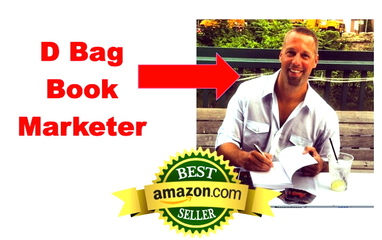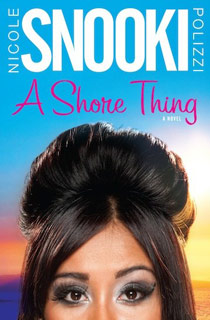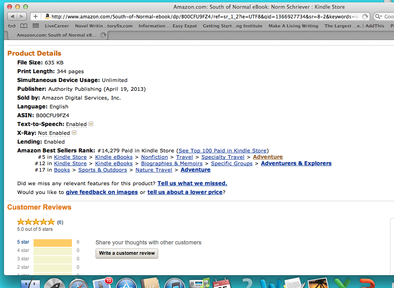
I know what you’re thinking: “Who gives a flying shiznitt?” And I totally agree, but please grant me two seconds anyway, so I might be able to provide you insight into the highly suspect nature of best seller lists.
You see, I love writing, and I love sharing that writing with you. And on the rare occasion that you, the reader, remark that you actually enjoyed my words (whether out of generosity or intoxication, I couldn’t care less) it just sends me to the moon. But I hate trying to sell books. In a perfect world I could just live in a hut on a tropical beach halfway across the world and write my heart out and the books would sell themselves. But, alas, I find myself required to participate in polite society from time to time, like everyone else. Sighhhhh.
Certainly, I’m not alone: there are over 300,00 books published every year, all clamoring to be sold! That’s a lot of hungry authors yelling at the top of their lungs (on the internet) for you to buy their book. Me, me me! After a while it gets so loud and cluttered that it sort of cancels itself out, giving the general public a big, dull headache.
Don’t get me wrong, I believe my book is damn entertaining and worth a read, but I resist becoming a part of that club. At least once a week I vow never ever ever to become yet another d-bag book marketer…but that lasts about thirteen minutes and then do it anyway, subjecting myself to the industry’s recommended solicitations: wasting time on Facebook and calling it a social media campaign, begging semi-famous people for a shout-out, pandering to appear on B-List radio shows with plastic plants in their studios, and kissing the ass of some social misfit just because they have a magical thing called a “blog.”
As an Indie author (which really means ‘self-published’ but we say ‘Indie’ because it sounds WAY cooler, like we’re SO artsy we have no use for abstracts like success and money,) I’m required to work the big room, über-conscious of marketing, promoting, publicizing, advertising, and, ultimately, selling my humble work. It’s not out of greed – in fact it takes a LOT of book sales just to break even on my costs or to make a little money. Most authors make more money off of speaking engagements, coaching, ghost writing, or selling you their marketing program than they do off of book sales, and unless you’re one of the iconic few in the ivory tower of publishing (James Patterson, Stephen King, etc.) you probably haven’t quit your day job.
Now, I didn’t say I’m bad at it – I do okay, considering my marketing budget closely resembles a round, bread-like toasted breakfast item that’s covered in crème cheese. But I truly despise it.
Yet somehow, inexplicably, lightning struck a month after I released South of Normal (shameless plug) and it achieved Amazon.com’s best seller status. But before you take out the pom poms and get all excited, (or call “bullshit,” as I probably would), let me explain how the whole thing works, and then maybe you’ll agree that best seller lists, super novas in the book marketing universe, are sort of…d-baggish.
What is a best seller?
When people hear “best-seller” they assume we’re talking about the New York Time’s Best Sellers List, (NYT is officially the “best sellerS” list, while some spell it ‘best seller’) which is like making the Hall of Fame of writing. But the New York Time’s list isn’t the only game in town – there are also best selling lists published by the American Booksellers Association, IndieBound, Barnes & Noble, Publishers Weekly, the Boston Globe, USA Today, Denver Post, Wall Street Journal, Los Angeles Times, and Walmart.
Yes, I’m serious, Walmart. Imagine someone bragging: “I’m a Walmart best-selling author!” That’s like saying you have the best teeth in West Virginia.
No matter which list we’re talking, there are warts to this honor. No one knows the exact algorithm they use to rank books but industry insiders understand which marketing activities are most beneficial to land their clients on the list. For instance, the NYT list traditionally didn’t tally book sales but book orders, and to only a handful of brick-and-mortar bookstores. So smart publicists focused their dollars on ensuring advanced orders to those specific stores, and voilà – their client was on the list.

Buying your way onto a list.
If that’s not watered-down enough, there are even ways to buy your way onto best selling lists. Legitimate publicity firms will ensure your placement based on what you pay. The formula is simple – pre-order enough of your own books from the right book stores (albeit at a discount) and you will rank high enough to show up on the list. Then you can re-sell the books to recoup some of your costs. To avoid transparency, the firms break up the orders into purchases from smaller corporate entities with different names. It might cost you $50,000-$80,000 to get on the Wall Street Journal’s list, and triple that to be in the big-daddy NYT list.
What about eBooks?
And then there are online eBook sales, through Amazon.com, Barnes & Noble.com, and Smashwords.com, etc. Both eBooks and Indie publishing have completely changed the landscape of publishing over the last five years, ensuring the democratization of literature like nothing since the Gutenberg press. 23% of all book sales in 2012 were eBooks, so Amazon and Kindle, who are tag-teaming a takeover of the whole English-speaking world (and doing a bloody fine job of it,) have their own best-seller lists.
How do you become an Amazon best seller?
What does it take for an author to become an Amazon.com best seller? There is no hard and fast rule, but I’ve heard authors generally call themselves a best seller if their book hits top ten in any category. That was confirmed when I Googled “How many book sales do you need to call yourself a bestselling author at parties to get free drinks from rich people and attract attention from women who otherwise are way out of your league?” Top ten, it is.
Can you beat the system?
Does everyone play nice on Amazon? Of course not. A concentrated burst of sales and reviews is the fastest way to move up Amazon’s list, at which point they promote you themselves, so some authors pay for reviews. John Locke, who set the record for the most eBook sales with Donovan’s Creed, admitted to paying for reviews! He hired a firm to buy 15,000 of his own eBooks to “juice” sales and write favorable reviews, sky rocketing his exposure. A lot of people in the industry aren’t too happy with that, but I give him credit for outplaying publishing’s innately crooked game. Screw ‘em.
Some authors price their eBooks at rock bottom, 99 cents, to promote volume, or even give away masses of books for free because, ultimately, a review is worth more to your exposure and future profit than the .35 cents you might pocket today. Kindle is accommodating enough to set up your free giveaway and then independent internet sites will help you promote it on the web, charging you for the privilege. So you end up paying to give your book away for free! If that’s not counterintuitive to the spirit of commerce then I don’t know what is.
The trick to ranking high on Amazon.com.
Amazon places books in general categories, like Romance, Biography, Science Fiction, etc., but with 7 million books in print they need distinctive subcategories, like “Civil War memoir,” and “Anything that has to do with zombies.” They even have sub-sub categories, and it goes on and on. When an author registers their book it behooves them to place it in the most specific category possible so they’ll face the least competition, and therefore have the best chance of rising in the ranks. Make sense?
When registering South of Normal on Amazon (alright, Norm, stop with the name dropping - we get it already) I first tried placing it in a sub-category where only nine books existed, so I’d automatically rank in the top ten. But changed my mind because I don’t think a book about living in Costa Rica would do well in the only nine-book category I could find:
Fantasy> Fables and Myths> Biography> Politics> Honest Republicans.
Instead, I landed in:
Kindle Store> Kindle eBooks> Nonfiction> Travel> Specialty Travel> Adventure.
Really? Specialty travel? What does that even mean, I’m “special” and I happened to travel, so I get my own category? Books register in a few categories, so I also was a big hitter in:
Books> Humor & Entertainment> Love, Sex, & Marriage.
Wait, so you’re telling me that my book is considered a literary marital aid? A discourse on intercourse? Actually, that makes perfect sense, since I wrote about important topics like "Jungle Bush," tourists surprised by transvestite prostitutes, and how sand is definitely not a lubricant. But we can all agree that I’ve never been accused of being humorous.
Anyway, the book was released and I begged everyone I’ve known since 2nd grade to buy it and write a review on Amazon, including talking my own mother into writing one under a pseudonym (Pia.) But I vowed not to get caught up in the whole ranking thing because I’m better than that…so I only checked the rankings first thing in the morning…and after meals…and every time I saw an article on Kim and Kanye, but I swear, that’s it.
Remarkably, with a modest burst of Kindle sales and a few great reviews (some of them from REAL people other than my family members) South of Normal showed up on the Amazon rankings at #20 in its category, and then #17, and then, the next day, #13.
I was moving up! God bless America! The system is obviously working if it rewards pen-wielding prodigies like yours truly!
But then something horrible happened – I dropped back down to #15. F ‘em! Sons of beaches! I won’t lower myself to this kind of degradation!

The Tribe had spoken - I was an Amazon best-selling author. Who the hell was I to question it? I took a quick screenshot to record the milestone for posterity (and for those who called “bullshit”,) then took it from a better angle, then squeezed my head next to the screen to take a selfie. I immediately updated Facebook and added the Amazon best seller graphic to my email signature, taking up roughly ¾ of the computer screen so it would be physiologically impossible for anyone but Stevie Wonder to miss it.
I kept checking the rankings to calculate when I’d overtake John Krakauer’s Into Thin Air, the legendary Everest tale that sat atop my category on Amazon, but I still lagged slightly - I only needed about 947,962 more sales to knock off Big John. Instead, my book lingered in the top twenty for a few weeks, then eventually sunk into ranking obscurity. But it was too late to take it back; I was officially a best seller, a brand I could narcissistically use for all time (and especially at parties.)
But don’t worry…this super-duper impressive designation won’t go to my head one iota. I’m not going to turn into yet another d-bag book marketer, wearing sunglasses indoors and saying “Let’s do lunch, babe.” I’m still the same good ‘ol broke schlub you know and don't love, a humble blue collar man of the people. So don’t feel like you need to refer to me as an Amazon best-selling author or anything…MISTER Amazon best selling author will do just fine! Ha! (Insert evil laugh here.)
Now, if you’ll please excuse me, I’m headed to Walmart to sneak some more of my books onto the shelves. Number one with a bullet, baby!
-Norm :-)
 RSS Feed
RSS Feed